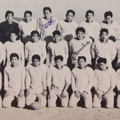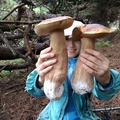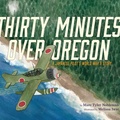One of my great aunts died this week [Note: This article was written in September 2010]. She was in her late 80s, an age that another of our elderly family friends once called something that translates like “an age you can’t complain about dying at,” and she had been sick for almost as long as I can remember. To me, the news didn’t come as a huge surprise and, through this point in my life, death has always felt so foreign that I think I barely know how to register it.
But in just the past couple of years, it seems that news of a family friend or relative’s death has come more and more frequently. Last spring, I lost someone particularly special, a friend who died of breast cancer in her early sixties, whose ring I haven’t taken off since the summer of my twentieth birthday.
Within a few months of her death, a friend of my mom’s died, this one around the age of my parents, leaving behind three daughters, the youngest of who had barely graduated from high school. We visited another friend at the hospital last month, he only in his forties, quickly degenerating under the cancer he only learned a couple of years ago.
All these encounters with death and dying have hit me similarly. I don’t cry; I want to, but in my wanting, I feel guilty and lucky and false…and most of all, I feel young.
My Auntie Mei, the one who just passed away, she was part of the extended family who took my mother in when she first moved to the U.S. more than thirty years ago. Even as we moved around the country, I remember my L.A. family as one of our few constants, gathered in an eclectic group in Auntie Masae and Uncle John’s living room at New Year’s, passing around champagne, admiring the fish.
Every year one of the aunts would make cake and her husband would make scallops. And every year, Auntie Masae would point at all the different types of osechi ryori on the table and tell my brothers and me what to eat for fertility and happiness. Auntie Mei’s husband, Uncle Tosh, told war stories in his gruff voice, brushing them off as entertaining adventures, and Uncle John sat silently smiling, drinking beer out of a glass. My brothers snuck outside to stare at the koi in the pond out back, and I hung around the kitchen wondering when I’d be old enough to be offered coffee like my cool, older cousin.
My Uncle John died years ago but Auntie Masae keeps his photo on a short table in the living room, next to the fireplace, always with fresh flowers beside it. On a bookcase across the room, she keeps framed photos of others she loved and lost: her two brothers, her parents, cousins whose names I don’t know.
The morning after learning about Auntie Mei’s death, I was locking the front door, leaving the house for a day of working at both of my part-time jobs, when my cell phone rang in my bag flashing a private number. It was Auntie Masae, worried that we hadn’t yet heard the news. I told her as I walked to my car where my parents were, how we had all gotten Friday off work and school to make it to the funeral. I heard her voice break, we said goodbye and hung up, and I sat for a while in the driver’s seat with my hand on the keys.
This month, two of my closest friends moved to Europe, one to study forensic anthropology and one to teach English. Old friends I haven’t seen since they were fifteen, or even eight, are now teachers, parents, PhD students, work in advertising, have gotten engaged. Our grandparents have died, our parents have gotten divorced, we’ve come out, gone to counseling, been heartbroken and unemployed. But life at 21, 22 feels mostly about possibility. There are almost no ways to go wrong, at least compared to the overwhelming number of potential rights.
When I was a kid at Auntie Masae’s house I used to look at her collection of photographs on the shelf and wonder how it could be that she kept the same photos up all the time. I might have been in middle school at the time, going through disposable cameras and begging my mom to take me to the drug store for 24-hour development early the next morning after 6th grade dances so I could refresh the photos on the cork board in my room. To me, there was no time like the present and the immediate past.
I remember it finally occurred to me one day at that house in Monterey Park that my auntie’s life was more than seven times the length of mine and these people who had been dead for my entire lifetime had been alive for decades first. It’s the same as when people wonder why my mom, after living in the States for more than thirty years, still doesn’t consider herself American. Moving away from home at twenty doesn’t mean you cut your roots and start over, and losing a brother at forty doesn’t mean he’s forgotten when you’re ninety.
The funeral happened last weekend, at a cemetery in Whittier, in the Japanese garden-inspired lawn. I was given the job of recording koden, offerings of sympathy in little white envelopes. Though fall had arrived along the coast, it was hot and sunny inland; I wore sunglasses and people spoke to me in English and Japanese without deliberation.
As guests who knew each other better gathered, I thought about this side of the family. They’re distant relatives to begin with, almost all of them I know less than I’d like to, and though Auntie Mei had always been in the background of my life, I knew I didn’t know her immediate family’s pain. At the same time, I realized with shameful excitement that I was old enough to take in the funeral rituals for the first time, my koden-collecting job included. And my thoughts drifted more than a little to the dinner date I’d been looking forward to all week. I tried to force my mind to stay still.
I watched the funeral from the check-in table, the minister with the thick, non-Japanese accent giving a review of Auntie Mei’s life from her childhood, through the internment and her marriage, through her career as a tailor all the way through her long-lasting love of horse races. At one point during the service, I noticed a banner on one of the flower arrangements next to the casket, reading, “Beloved Sister.” Auntie Masae sat in the front row, small beside her niece and nephew-in-law. Next to Auntie Mei’s casket, poised to be lowered into the ground, was Uncle Tosh’s headstone. Two away was Uncle John’s, the family name in the center and a blank space on the right ready to be engraved one day for Auntie Masae.
One of my friends recently interviewed his grandpa on camera. “I felt kind of morbid,” he told me, “because he kept asking, ‘Why did you want to interview me?’ ‘What will you do with these stories?’”
Three out of four of my grandparents died either before I was born, or at least before I had a chance to know them. Uncle John passed away when I was a kid and my friend whose ring I wear, she had the most adventurous life and I know barely any of her stories. I hope her family knows them.
In some ways I feel as if my life only really started in the past few years, if not the past few months. It’s exhilarating, but everyone who has been young has been here. In high school, I had a teacher who was little over ten years older than his senior students. He wore Rainbows and told stories about his college days, and he had his first daughter the year we took his class. He had a photo on his desk of him and his wife, young and smiley on a swing, she on his lap.
After my friend with the ring died, her husband invited me over to look through her clothes to see if I could use any of them. He was in the process of organizing her things: there was yarn all over the dining room table and photos all over the mantle. In one photo, they’re in their twenties. She’s gorgeous with intense eyes, mouth open mid-sentence and he’s sitting beside her on the couch, looking at her with this smile that looks like adoration and disbelief.
For a while after Uncle John’s death, Auntie Masae would talk to his photo on the table when we were over. Not in sentences, but little pieces of commentary interspersed through the stories she told us. “Ne, dear?” she’d say as if for confirmation. “Isn’t that right, dear?” And I wonder what it must have been like for them in the beginning, telling stories together, stealing kisses, starting their lives.
*This article was originally published on Open Salon on September 22, 2010.
© 2010 Mia Nakaji Monnier





